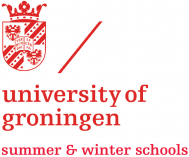9 July 2024
on course website
Developing Across Differences: Moving Past The Past
“I feel discriminated against. Help me.” “There are tensions in our team around racial issues; what should I as the group leader do?” “What are unconscious biases? And why should we even care?”
This course is for HR officers, consultants and other diversity professionals who seek answers to these and similar questions so that those they support can work together more effectively by addressing and overcoming racial, ethnic and other discriminatory tensions, inequities and conflicts that impact everyday interactions.
Why should you attend?
Join this course for contextual, historic insights about the origins of systematic discrimination and to gain practical skills that individuals in your organization — or those of your clients — can apply for more successful interactions with their fellow colleagues and other stakeholders.
Part 1 of this course will provide a contextual grounding on the topic by demonstrating how negative aspects of the past may be manifest in present-day behaviors and enabling structures. Using as an example Dutch involvement in the slave trade, we examine the historic roots of racial discrimination that is unequally visible to different members of our groups.
In Part 2, we examine how developing certain practical skills — perspective taking, using emotion regulation techniques, and offering/accepting genuine apologies — to acknowledge the past’s impact and move beyond it can help build better interpersonal dynamics and resolve conflicts or tensions to result in a more constructive environment.
Course leader
Dr. Anjana Singh & Dr. Nadine Binder
Target group
Participant profile
This course is for you if you are — or are helping those who are —
● Serving in a role that supporting colleagues’ professional development and wellbeing (e.g. HR, human capital, people)
● Implementing diversity and inclusion initiatives within an organisation and want to address (inter)personal changes needed within an organisation
● Providing training or on-the-job professional development opportunities to help colleagues better communicate and collaborate across diversity
Contact the organisers at ic@rug.nl or info@iddifferences.org if you have questions about the suitability of this course for your circumstances.
Level requirements
The DAD is for multipliers who help individuals, organizations and societies better recognize, appreciate and use differences as a way of better communicating, working and thriving together.
These are (in-house and external) trainers, educators, consultants, coaches, researchers, scholars, facilitators, HR staff, advanced-level (MA+) students, and professional development specialists with 5+ years of experience/study in the greater Differences field. Contact the organisers at ic@rug.nl or info@iddifferences.org for consultation about appropriateness and eligibility.
It is expected that the participants have a sufficient command of the English language to actively participate in the discussions and to present their own work in English.
Course aim
In this course, you will learn how to help yourself and those you work with so that you/they can better:
● Have a solid understanding of the historical underpinnings of racial, ethnic and other discriminatory practices.
● Appreciate and articulate ways in which negative aspects of legacy can be present in current interpersonal dynamics and interactions.
● Develop skills around perspective taking, holding space for uncomfortable questions and answers dialogues, using emotion regulation techniques, and offering/accepting genuine apologies in order to begin to move beyond the past to a more constructive future.
Credits info
Workload
6 hours of in-class learning and active participation using experiential methods.
Upon successful completion of the programme, the Summer School offers a Certificate of Attendance that mentions the workload of 6 hours (28 hours corresponds to 1 ECTS). Students can apply for recognition of these credits to the relevant authorities in their home institutions, therefore the final decision on awarding credits is at the discretion of their home institutions. We will be happy to provide any necessary information that might be requested in addition to the certificate of attendance.
Fee info
EUR 560: includes course and materials, optional evening programming
Register for this courseon course website

